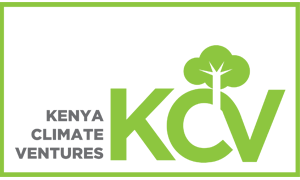Most of the human activities spawn waste. This has been a concern from the pre historic period, and the condition gets intense as the population keeps growing.
According to Wilson, 2007, the volume of waste generation increased in the sixteenth century when people began migrating from rural areas to cities resulting from the industrial revolution.
Defining Waste
What exactly is a waste? Waste can be defined as the useless by-product of human activities which physically contains the same substance that are available in the useful product (White et al, 1995). It can also be defined as eliminated or discarded as no longer useful or required after the completion of a process or even what may be termed as unwanted or unusable material, substances, or by-products.
In Kenya, waste has been a major issue, with most of the low and middle-income earning areas lacking collection systems. Article 42 of the Kenyan constitution states that every person in Kenya is entitled to a clean and healthy environment. While the government sets policies, frameworks and standards to govern waste management, there are gaps in the way waste is actually collected, disposed, up-cycled or recycled.
Read more: Supporting women in enterprise
Among the classifications of waste is agricultural waste under the solid waste category. These are non-product outputs of production and processing of agricultural products that may contain material that is beneficial to human but whose economic values are less than the cost of collection, transportation, and processing for beneficial use. It includes manure and other wastes from farms, poultry houses and slaughterhouses; harvest waste; fertilizer run- off from fields; pesticides that enter into water, air or soils; and salt and silt drained from fields.
Companies are tapping opportunities arising from what may be seen as a problem by transforming the waste into valuable products such as biogas.
Sistema.bio Technology
Sistema.bio, a KCV investee distributes a biodigester that has the capacity to receive manure from backyard animals and generate biogas that can be used to cook and generate power. This invention has improved the livelihoods of the small-scale farmers and entrepreneurs by meeting their daily domestic needs as well as equipping them with the ability to generate bioslurry which may be used as fertilizer and as animal feed, hence increasing yields and incomes.
Read more:Investing in green energy- the path to post covid-19 recovery
The company also empowers smallholder farmers by providing them with access to technology, capacity building and finance. Farmers who face the problem of affordability have the option of purchasing the biodigesters in instalments. Through Sistema.bio’s innovation, unsustainable sources of fuel – like firewood and charcoal are eliminated and replaced with clean cooking fuels. Chemical fertilizers are also replaced by organic fertilizers.
There is need to continue developing solutions to Kenya’s ever-changing waste management needs as well as generate resilient revenues that drive strong and consistent cash flow and unmatched return on invested capital.
Waste management is not only a way to protect the environment, but also a great investment opportunity that innovators and investors can tap into.












